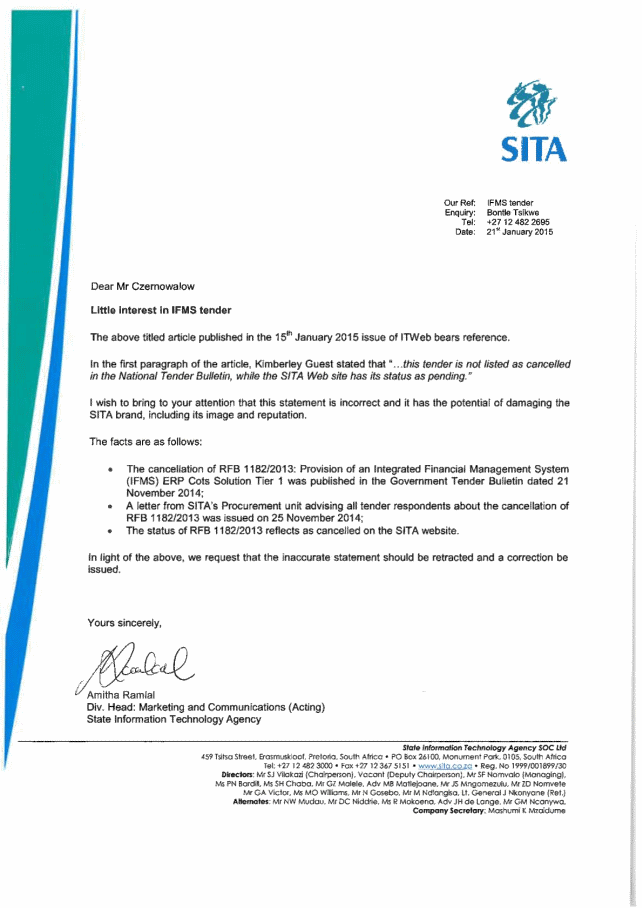Correction
SITA has clarified the IFMS tender timeframe and processes as per its letter to the editor (see below). ITWeb apologises for these errors.
The ICT industry has until the end of January to bid on government's multibillion-rand tender for an enterprise resource planning (ERP) solution.
The tender, advertised through the State IT Agency (SITA), is government's second attempt to procure a single, fully-functional ERP system. Its previous attempt attracted only two bids from India's 3i Infotech South Africa and SAP. Published in the 2013/14 financial year, this tender is not listed as cancelled in the National Tender Bulletin, while the SITA Web site has its status as pending.
The project aims to deliver an integrated financial management system (IFMS) to be used throughout national and provincial government. It is critical to tightening financial control, eradicating corruption and improving public sector efficacy. It will encompass core operational functionality, including supply chain management, financial management, HR management, payroll, inventory, and business intelligence.
IFMS replaces government's decade-long attempt to develop its own hybrid solution. The public sector joint-initiative - led by National Treasury in partnership with the Department of Public Service and Administration and SITA - encountered endless difficulties and delivered minimal results. Despite having already cost around R1 billion, Cabinet abandoned the project after a battery of reviews and investigations determined it lacked feasibility.
The endless difficulties led to National Treasury assigning the accountant-general to closely monitor activity. Towards the end of 2013, National Treasury established a programme management office (PMO) to oversee the project and make sure it meets targeted objectives, on time, within budget and at the standard required. Many of the PMO's responsibilities previously fell under SITA.
Only vendors need apply
The current IFMS tender, like last year's, is open only to software vendors or original software manufacturers, precluding local service providers from participating. This stipulation irks industry players, who argue system integrators can offer the same software with the advantage of larger skill pools and greater insight into South African operating requirements.
The compulsory briefing session hosted at SITA's Pretoria headquarters revealed a growing wariness among industry players. The 2013/14 tender attracted over 150 attendees to the briefing, yet the latest tender received an audience of 78, many of whom were SITA employees. The question and answer session also saw industry players querying whether SITA would be refunding deposits paid on former tenders.

Companies have until 11am on 30 January to place bids into the tender box situated at SITA's Centurion offices.
Share